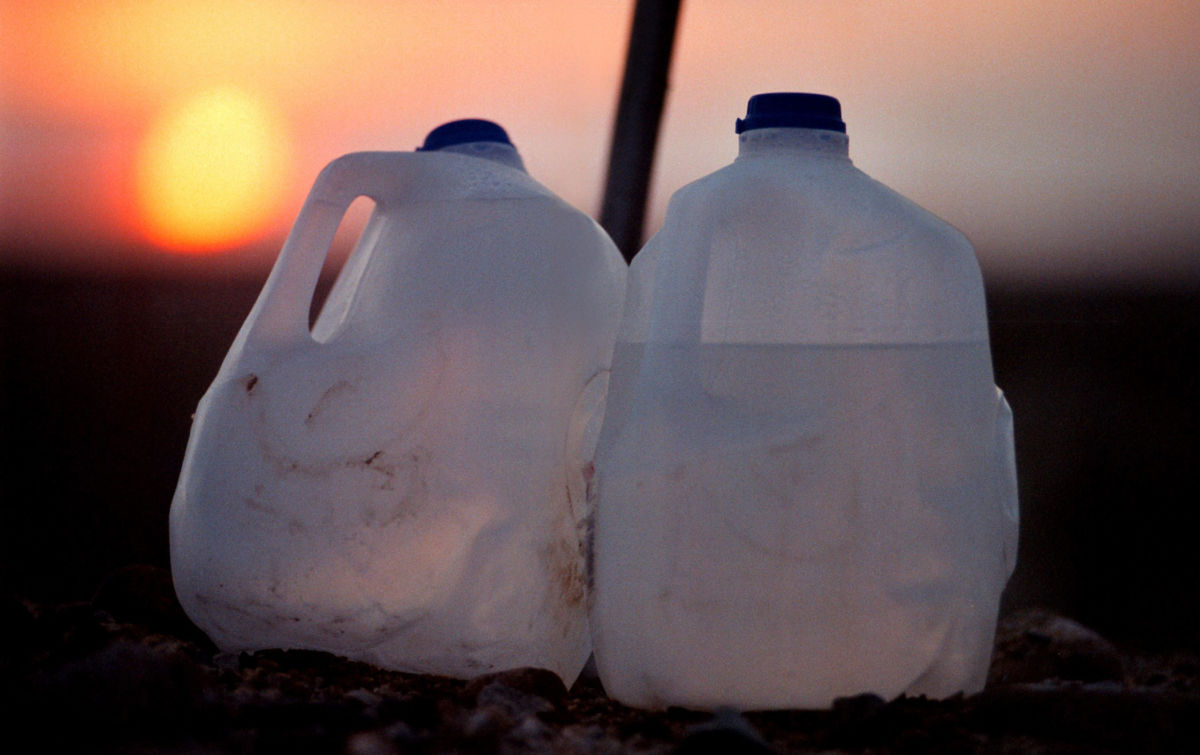How low can the values of the US sink?
On January 19, a federal judge found four women guilty of misdemeanors after they entered the Cabeza Prieta National Wildlife Refuge along the US-Mexico border without a permit. The group traveled there in August 2017 to leave food and water for migrants at a time when temperatures generally reach triple digits in the Arizona desert.
The four individuals are members of No More Deaths – a ministry of the Unitarian Universalist Church of Tucson, which has been providing life-saving aid to migrants in desperate conditions.
When the women were charged in December 2017, they at stated that they were motivated by religious convictions and a belief that all human beings should be provided with the means of survival.
Now each of these four women — Natalie Hoffman, Oona Holcomb, Madeline Huse and Zaachila Orozco — face up to six months in prison and a fine of $500 after being convicted by federal magistrate Bernardo Velasco.
In his ruling, Valesco noted that the Refuge is “littered with unexploded military (ordnance), the detritus of illegal entry in the United States, and the on-road and off-road vehicular traffic of the US Border Patrol.”
Yet he then proceeded to claim that the water and cans of beans left by the volunteers “in addition to violating the law, erode the national decision to maintain the Refuge in its pristine nature.”
Velasco added that the defendants did not “get an access permit, they did not remain on the designated roads and they left water, food, and crates on the Refuge.”
This US magistrate is choosing to prosecute citizens who leave food and water to help their fellow human beings, but not to prosecute the Border Patrol for dumping dangerous objects such as unexploded military devices. What’s up with that?
Hoffman was found guilty of driving a vehicle inside the Refuge, which is Arizona’s largest wilderness area and spans an enormous 803,418 acres of formidably isolated Sonoran Desert. The other three women, passengers in Hoffman’s truck, were charged with entering federally protected land illegally and leaving behind personal property.
It’s an area where numerous migrants are known to have died. In 2001, Mexican and US authorities launched an investigation when at least 14 migrants lost their lives after crossing the refuge’s border. Authorities concluded that they had probably died because they had been abandoned by smugglers.
What Has Happened to Our Values?
Why is it acceptable to leave plastic garbage in the ocean, but not plastic bottles of water for our fellow humans? Why is it OK for people to dump garbage in federal lands during the shutdown without penalty, but illegal to help our fellow human beings survive?
Catherine Gaffen, a volunteer for No More Deaths, stated that the guilty verdicts challenge “all people of conscience throughout the country.”
“If giving water to someone dying of thirst is illegal, what humanity is left in the law of this country?” she asked.
Trump is certainly guilty of abandoning any humanity. A document released on January 17 by government inspectors revealed that the Trump administration probably separated thousands more children from their parents at the US-Mexico border than was previously estimated.
The federal government reported that around 3,000 children were dragged away from their parents under Trump’s 2018 “zero tolerance” policy when families sought to enter the U.S. illegally. The adults were prosecuted and their kids forced into shelters or foster care. But the numbers could be much bigger, according to the American Civil Liberties Union (ACLU).
Why aren’t Trump, his Department of Justice, Stephen Miller and the rest of the administration being prosecuted for cruelty to children?
Orozco McCormick has said she considered her work almost “sacred,” and described being on the Refuge as “like being in a graveyard,” because of the number of migrant deaths that had taken place there.
Join us in defending the truth before it’s too late
The future of independent journalism is uncertain, and the consequences of losing it are too grave to ignore. To ensure Truthout remains safe, strong, and free, we need to raise $27,000 in the next 24 hours. Every dollar raised goes directly toward the costs of producing news you can trust.
Please give what you can — because by supporting us with a tax-deductible donation, you’re not just preserving a source of news, you’re helping to safeguard what’s left of our democracy.
